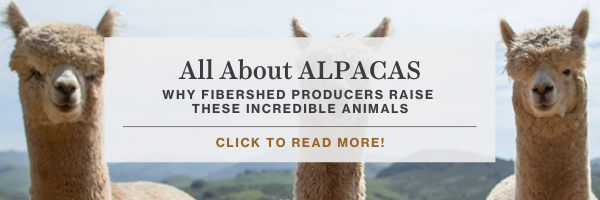Written and photographed by Koa Kalish
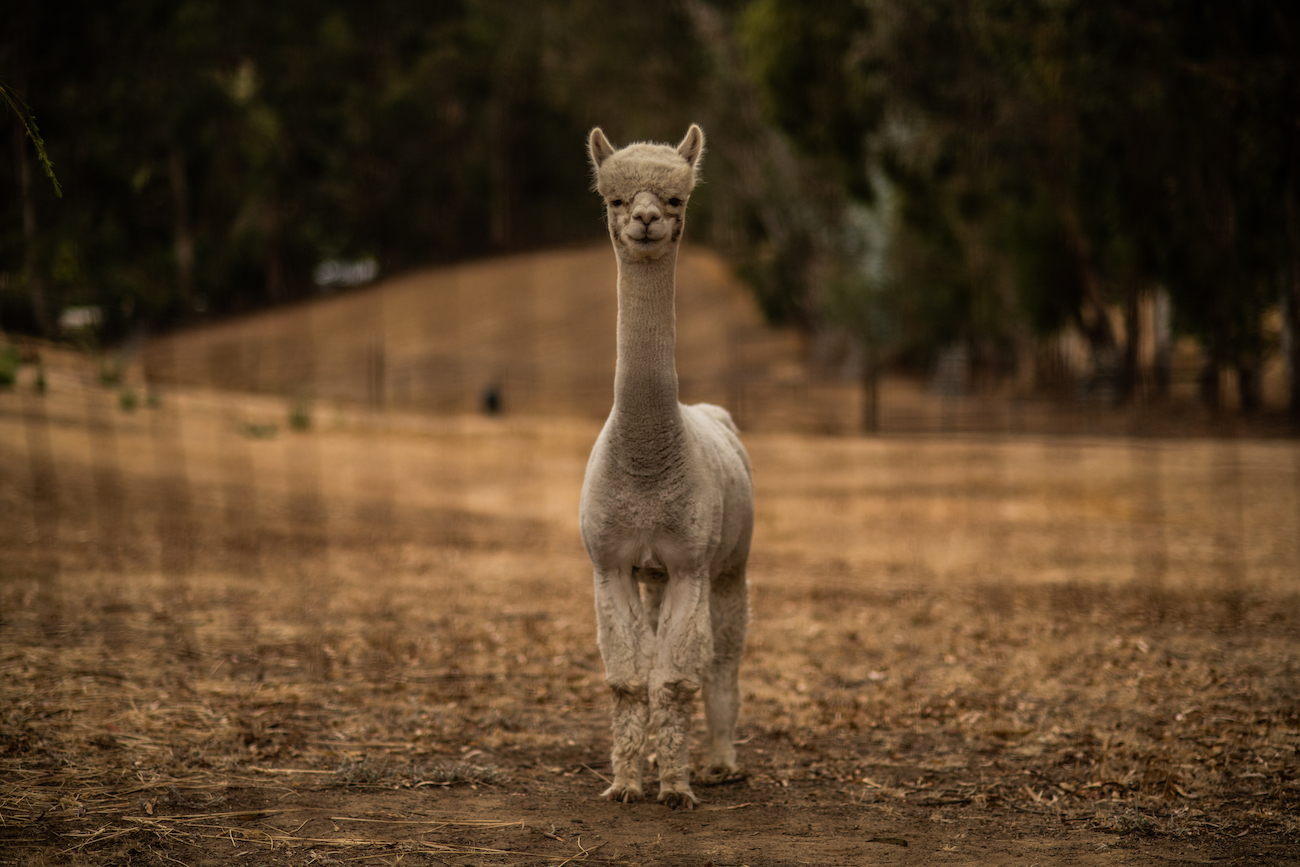
Alpacas Offer Nurturing Community
Three days ago, Lisa Beatty woke up to see all of her female alpacas huddled together in a tight circle, facing inward. She knew that they must be circling around a newborn cria (or baby). “All of the moms love the babies,” she explains. “They all make a point of checking out the new cria because now, they’re going to be part of the herd. ” This communal family lifestyle is just one of the many things that make alpacas so endearing.
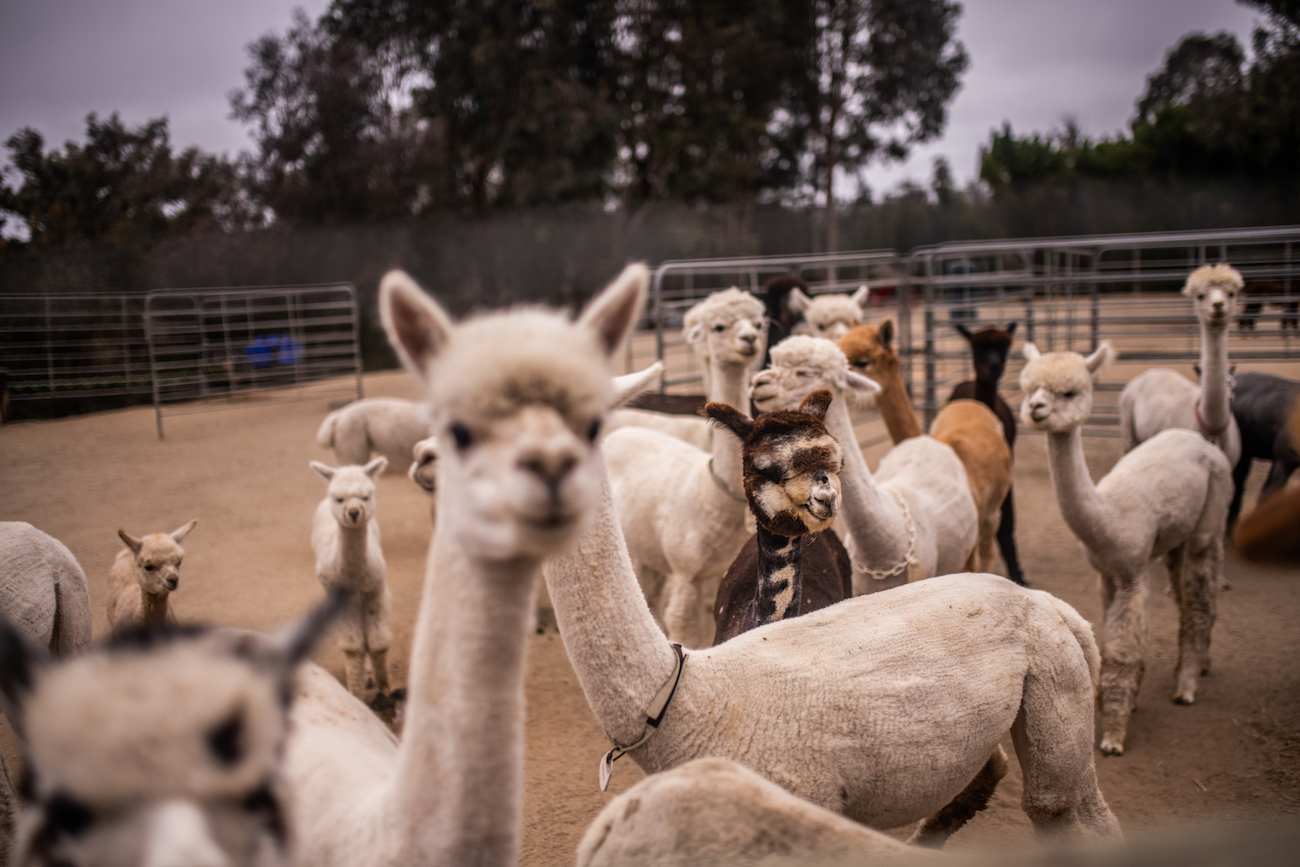
But when she walked up to the herd, she found a limp, dark brown baby girl in the center. The baby could not stand up and was not able to reach for milk from her mother. Lisa went into rescue mode, helping to feed and tend to her for the next few days. Putting on a hot pink jacket to keep her warm, she named her “Hot Chocolate,” or “Hottie” for short, and prayed for her survival. Luckily, on the third day, she started to walk and nurse on her own
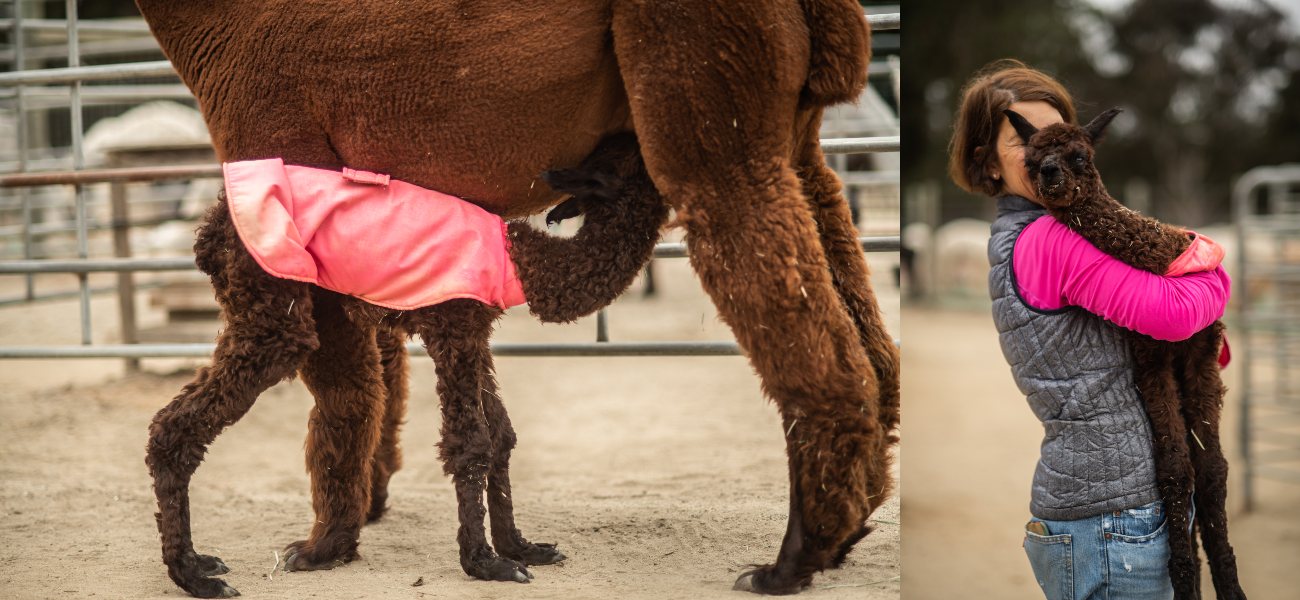
At Rockstar Alpacas, the tradition is to name every alpaca after a musical theme – a notable song, artist, or band. “There is Velvet (for Velvet Revolver), and her cria is named Grace Slick. We have Material Girl, a.k.a Maddie, whose mother’s name was ‘Cherish.’ So I was keeping my Madonna streak going with that line of names.” In addition, they have others such as Iron Maiden, Twisted Sister, Sweet Child o’ Mine, Bon Jovi, Fortunate Son, and Prince.
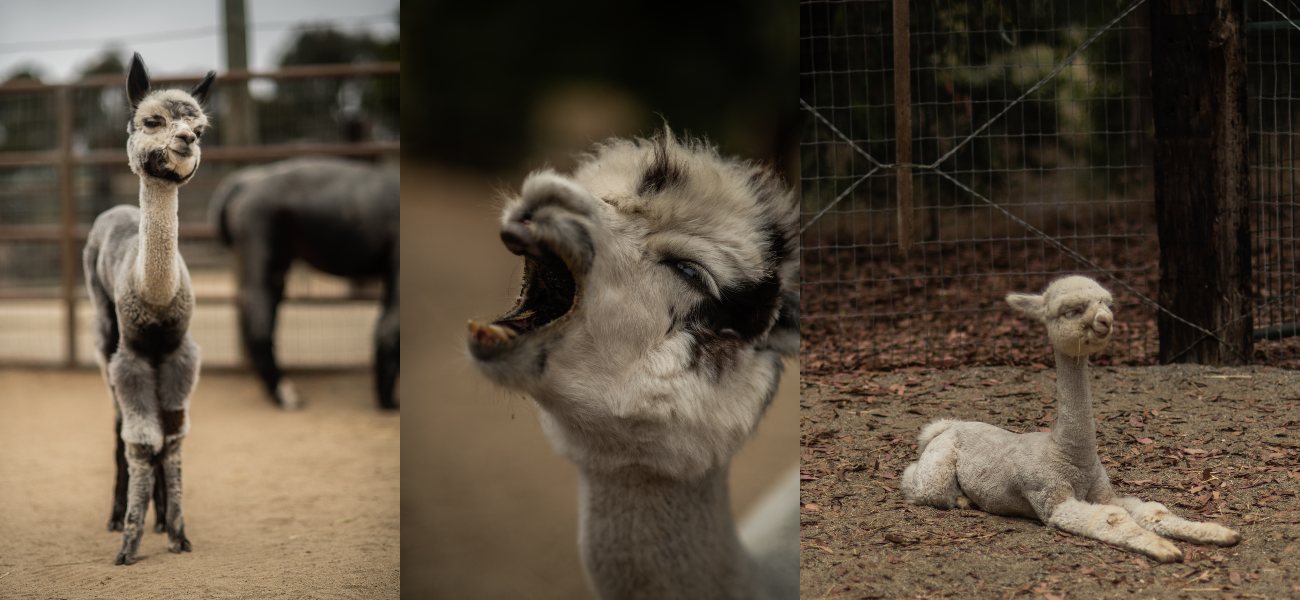
The rescue mission of Hottie reminded Lisa of another. One morning, in the middle of winter, she found a baby lying on the ground, motionless. She started giving him CPR, mouth to mouth, chest rubbing, compression, and then helped to bring his temperature back up to normal. “He was on his way out, but we brought him back. We named him Revival because he had had to be revived.” Revival also provided a rockstar reference to the band Creedence Clearwater Revival.
Living with the alpacas now for thirteen years, Lisa first started with two pregnant females. “It was easy to grow a herd fairly fast. I knew early on what I wanted to do,” she says. “I started out with animals of all colors, but I quickly became fascinated with white because of how fine and bright it is. The white tends to be the finest and most uniform of all the fibers.” Plus, with white fiber, you can then dye it any color of the rainbow.
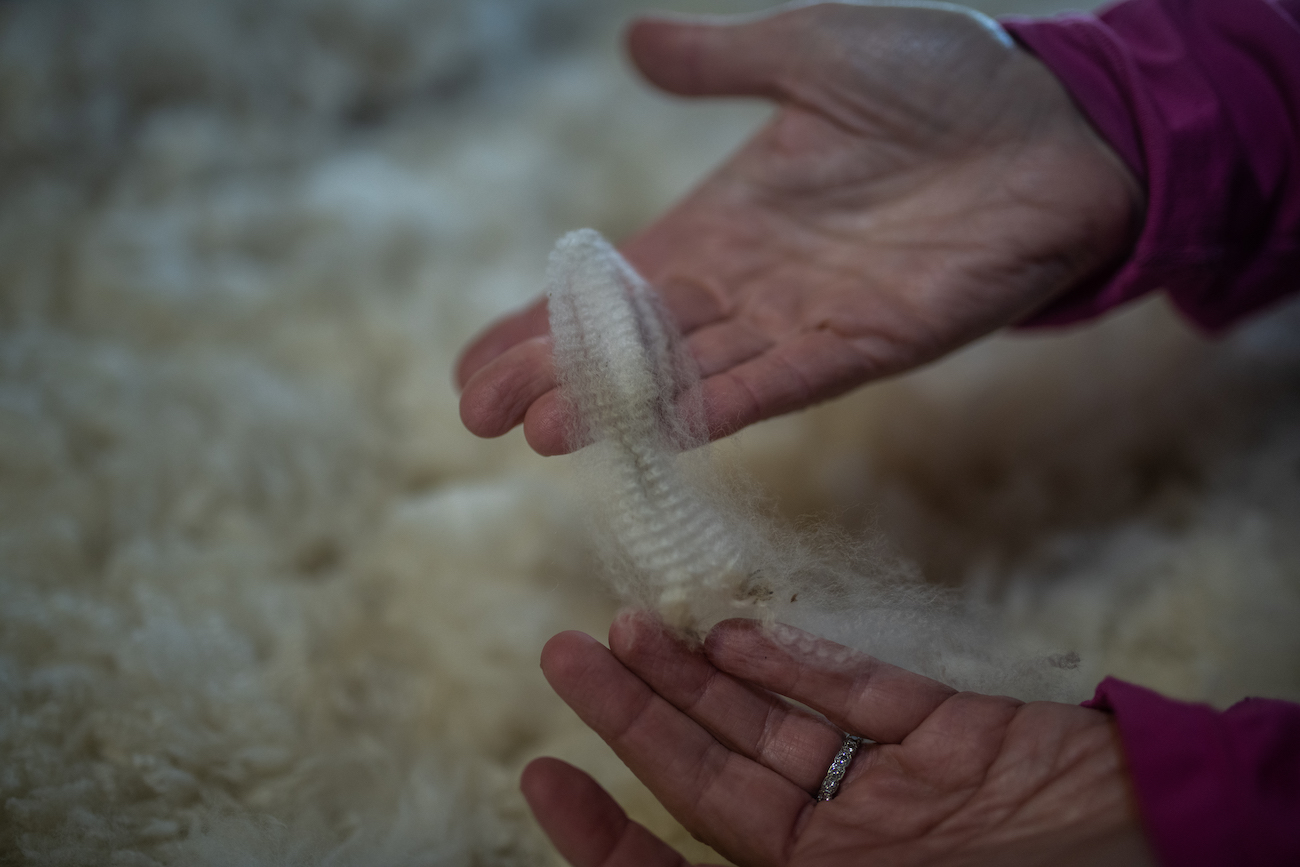
Alpaca fiber, however, already comes in its own natural rainbow. “Alpacas produce 22 natural colors,” Lisa explains as she displays the gradient of colors with her skeins of yarn from her animals. “Here you see white, beige, light fawn, medium fawn, dark fawn, brown, light rose grey, medium, and dark rose grey. Then there’s silver-gray, bay black, and true black (which all come in light, medium, and dark). And then,” she continues, “there are endless combinations of all these plied together!”
Besides the brightness and shine of the fiber, what matters most to Lisa is the density and overall uniformity each animal carries in its fleece. “I want to have the most usable, uniform fiber to come off these animals that I can,” she says. She accomplishes this by doing extensive research for her breeding program and using a variety of tools. “It has been so fun and gratifying over time,” she says. Conducting fleece assessments every year enables Lisa and her team to make better breeding decisions for what they need going forward. “My main factor is that I think about what I like up against my skin.”

“For example,” she explains, “if I’m Ralph Lauren, and I want to make alpaca sweaters, I want them all to feel the same way. So, my fiber has to be uniform, across the board.” When she makes the breeding decisions, she assesses the mother’s fiber and looks towards the male. “I’ll say, ‘okay, which male will complement this female, and in this next generation will give me the desired outcome that I want?'”
The Circle of Life for Alpaca Farmers
Now, with 35 alpacas and four babies on the way, Lisa relies on a team of other alpaca-loving humans to maintain the herd’s health and well-being. She is assisted by her husband Dave, their friend Jay who lives on the property, as well as dedicated part-time ranch helpers, as Lisa simultaneously works a regular full-time job. “We are a full team,” she says. “I am lucky and so grateful for having people that really care about the animals.” For example, when baby Hottie got sick, one of her helpers, Raelynn, called Lisa and said, “this baby is limp like a noodle and needs help quickly.”

Once a month, they have a herd-health day where the whole team is there to bring all the animals into the barn, get weighed, body scored, and check for any abnormality they may have, along with things like regular deworming and toenail trims. “It takes a tribe to raise a herd,” says Lisa.
This work stems from a deep devotion and passion. “I just love animals,” Lisa says. “I thought it would be so much fun to be involved in an enterprise where I could have my love for animals and grow them, in a sense. I love the fiber and getting to see it go from the birth of an animal, as they grow up and reproduce, and then as they reproduce, they’re still producing fiber that we then get to process and turn into things we can wear!” This is the circle of life, a process from the cradle to the grave that is incredibly satisfying.
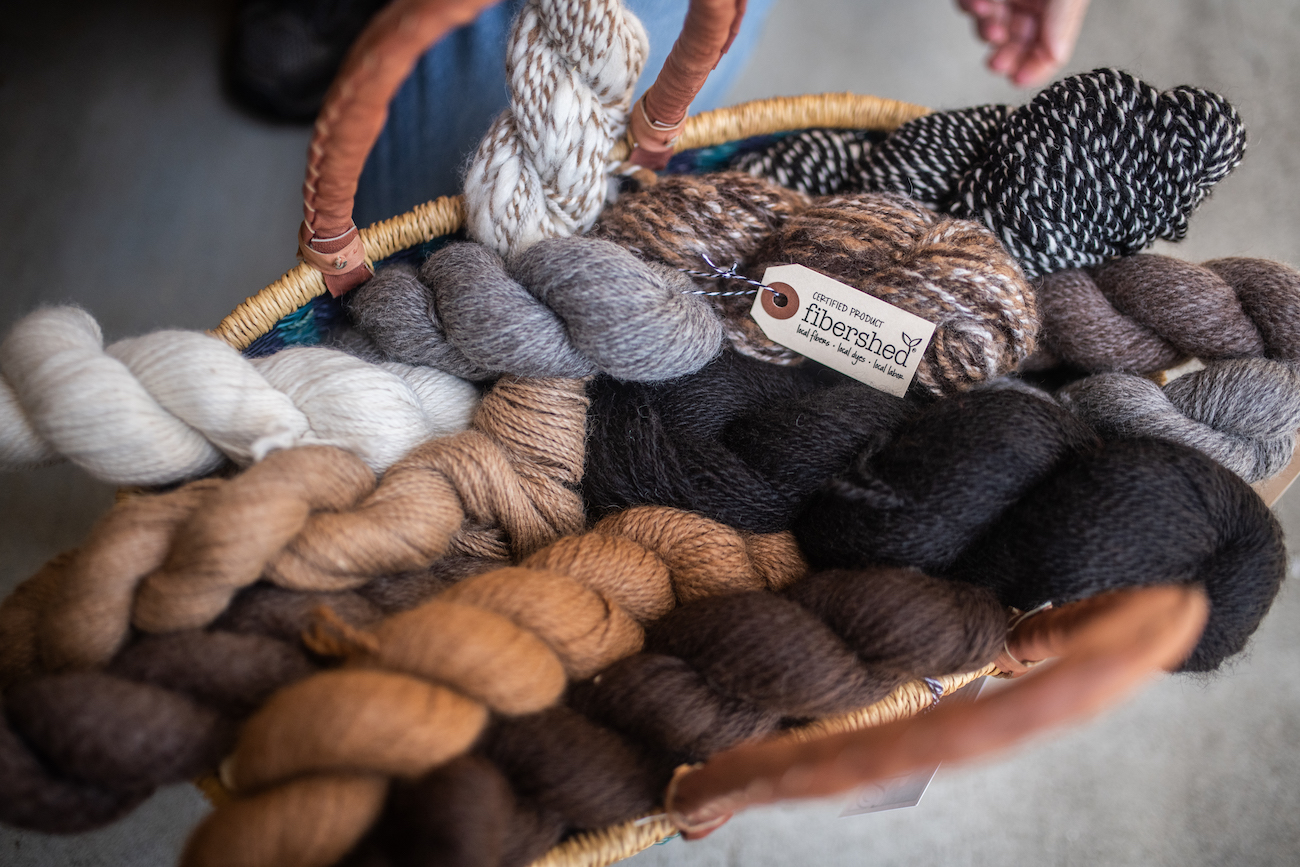
Additionally, Alpacas seem to be incredible emotional support allies. “No matter what I’m doing, how stressful my day may be, I can come out and sit with them, and I am transported from this crazy “I need it now” world to this very peaceful, serene life.” Lisa is contemplating opening an alpaca therapy animal program. She found with her five-year-old grandson, who may be somewhere on the autism spectrum, that he acts like a completely different child when he is with the animals. “I tell all my friends, ‘just go out to the ranch, pull up one of the Adirondack chairs, and just be with them.’ Just watching them can put you in a trance; it takes your blood pressure down. When you see little Gracie (Grace Slick), knowing how hard it was to get her born and seeing how beautiful and sweet she is… it ties everything together for me. God and Earth and all the things that pull it all together and it creates a balance and a grounding. For me, that’s the heart of all of it. It’s a labor of love. I have passion for it, and that’s what drives me.”
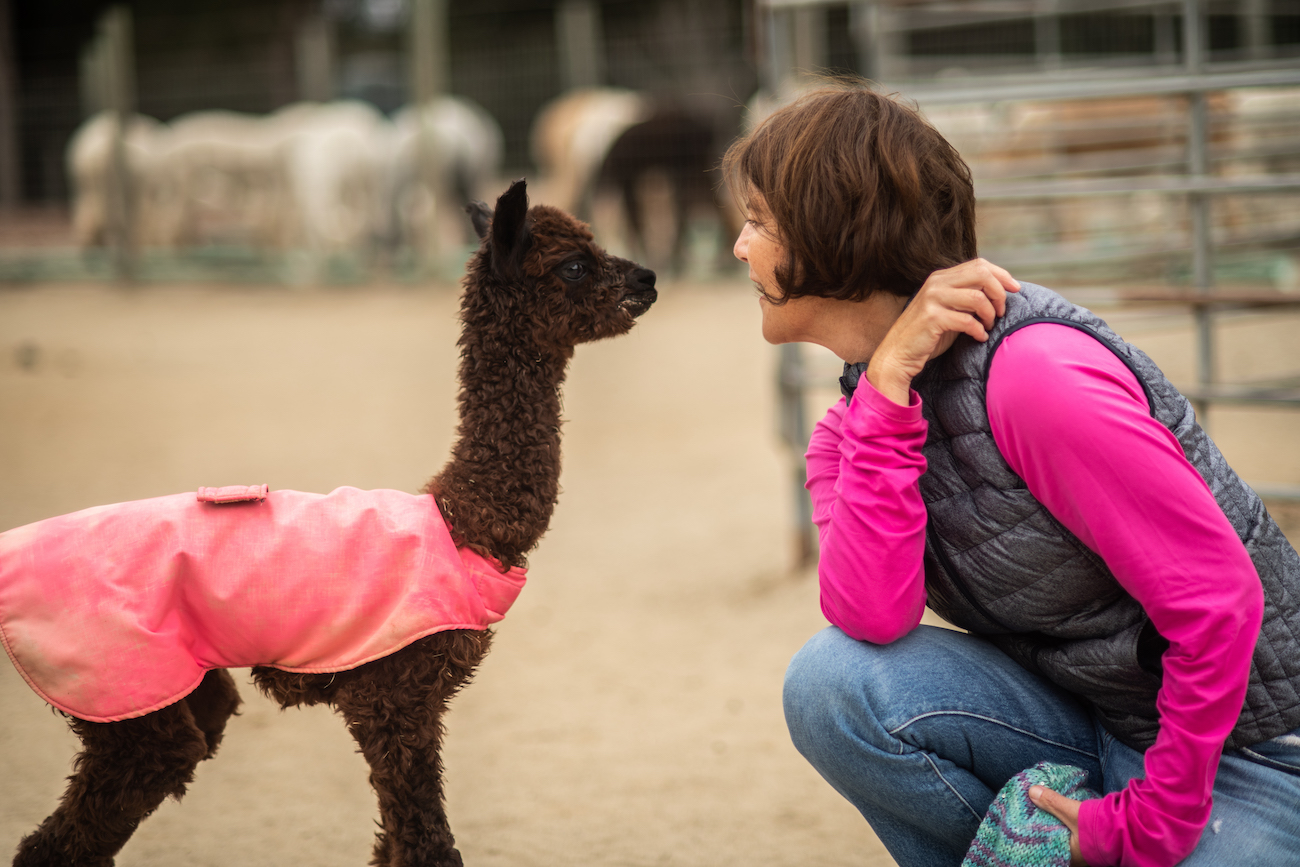
Please find Rockstar Alpacas products on www.rockstaralpacas.com. Learn more about Fibershed’s Producer Program, a membership-based network of farmers, ranchers, designers, sewers, weavers, knitters, felters, spinners, mill owners and natural dyers living and working within 51 counties in the North and Central regions of California.
Read more about incredible alpaca farms here.

